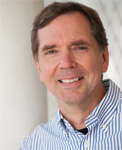When vocation chooses you

In the novel “Lying Awake” by Mark Salzman, the main character, a nun, becomes confused in her spiritual calling at the convent where she lives. The visions she used to have no longer occur, now that her epilepsy has been successfully treated by a doctor.
At the end of the novel, the nun’s Mother Superior approaches and asks if she will give one of the new nuns spiritual direction on discerning God’s will.
“I don’t feel I know anything about God’s will, Mother,” the nun said.
“Yet you’re still here, trying to do his will anyway,” the Mother Superior said. “That’s the kind of understanding I meant. The doing kind, not the knowing kind.”
Both women then watch as birds busily work and call around the fountain in the garden. The birds “seemed to have the best understanding of all,” Salzman writes. “They answered yes to everything.”
One of the mistakes we make in our culture is that we think the words “occupation” and “vocation” mean the same thing. They don’t. When they overlap, it’s a truly great thing. But it’s rare, I think.
An occupation is something we pursue. It is a goal we set out to achieve, as in “I am applying for a job.” We move toward occupations at the encouragement of guidance counselors, parents, standardized tests (watch out for those, though. The one I took said I was especially suited for farming or selling insurance!), and reading posts online with headlines like “The 10 Hottest Jobs for You!”
A vocation is different.
“Vocation does not come from willfulness,” writes Parker Palmer in his book “Let Your Life Speak.” “It comes from listening.”
Vocation comes from the inside out. It’s part of discovering our true selves and our true purposes in the world.
My wife is an accountant. That’s her occupation. She has an MBA from a major university, and uses her accounting and finance skills to help a medical technology company make products that will help relieve suffering, and help make the shareholders more money.
When our church became affiliated with an organization called Stephen Ministries, she signed up for the training. Stephen Ministers help provide compassionate care to individuals in personal crisis. The relationship between the minister and the one in need can last weeks, months or longer. The ministers don’t provide money or advice. They are trained to avoid the temptation to solve problems and meet specific needs. They simply provide compassionate presence to people who can’t continue on their own and give them the opportunity for their troubled hearts to rest. The only thing that Stephen Ministers can promise is that they will listen to those who need them, and that they will pray for them.
After being a Stephen Minister for a brief period of time, she said to me, “I know what I am put on earth to do.”
She spends most of her time being a wife, mother, daughter, sister, aunt and accountant. One hour per week she provides presence to her “care receiver.” But it is during that hour that she feels most “called” or “ordained.” That’s when she experiences the visible form of the invisible Spirit. That’s her vocation.
The writer Frederick Buechner said, “We can speak of a man’s choosing his vocation, but perhaps it is at least as accurate to speak of a vocation’s choosing the man, of a call’s being given and a man’s hearing it, or not hearing it.”
In a university setting, such as the one where I work (is it an occupation? A vocation? Both?), it is tempting to measure our effectiveness by charting the careers of our alumni. A more difficult dimension to measure is whether our institution is helping students find their true calling, to go where they are most needed, and where they most need to go. Are they saying “yes” to that call from Within?
Maybe we should start offering a degree in listening.
— by Dean Nelson
Nelson directs the journalism program at Point Loma Nazarene University in San Diego. His book on seeing God in everyday life is God Hides in Plain Sight: How to See the Sacred in a Chaotic World.





